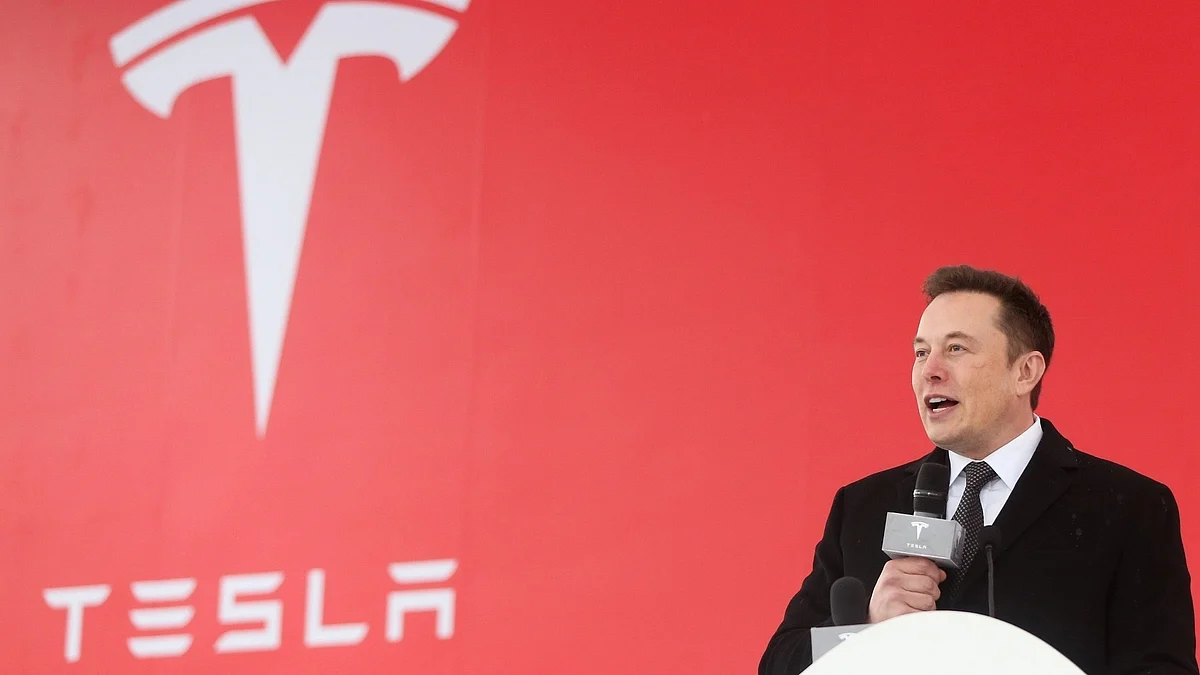Tesla’s overseas troubles make India entry crucial
A growing anti-Tesla sentiment has also hit consumer confidence, with some in the US distancing themselves from the brand

Tesla’s foray into India comes at a critical juncture for the electric vehicle giant, as it grapples with dwindling sales and rising hostility overseas. The company, led by billionaire entrepreneur Elon Musk, is pinning its hopes on the price-sensitive yet promising Indian market amid a storm of challenges in the United States, Europe, and other key markets.
In February 2025, Tesla’s sales plummeted across the United States, Australia, China, and several European countries. The decline was especially steep in Germany, where sales collapsed by 76 per cent last month, and Italy, where the automaker recorded a 55 per cent drop.
Rising competition and Musk’s vocal support of the US government and far-right leaders in Europe have fuelled a backlash, leading to an $800 billion erosion in Tesla’s market capitalisation.
In the United States, Tesla has become a focal point for political unrest, with attacks on the company’s properties escalating since former President Donald Trump took office. According to AP/PTI, showrooms, charging stations, and even privately owned Teslas have been targeted, primarily in left-leaning cities such as Portland and Seattle.
Instances of vandalism include Molotov cocktails thrown at dealerships, vehicles set ablaze, and anti-Tesla slogans spray-painted on buildings. Federal agents recently arrested a suspect in South Carolina accused of setting fire to Tesla charging stations and leaving behind anti-government writings.
The growing anti-Tesla sentiment has also impacted consumer confidence, with some Tesla owners in the US distancing themselves from the brand. Prices for used Cybertrucks have dropped nearly 8 per cent since Trump’s election, despite the overall used car market remaining steady.
Amid these overseas challenges, Tesla’s entry into India appears more vital than ever. Following Musk’s meeting with Indian Prime Minister Narendra Modi in Washington, Tesla has leased a sprawling showroom in Mumbai for five years, paying $446,000 in rent for the first year.
Tesla India Motor & Energy Pvt. Ltd. has locked in a five-year lease for the space in BKC, paying a hefty Rs 881 per square foot — far surpassing the Rs 738 per square foot that Apple pays for its store. The EV manufacturer has also placed a security deposit of Rs 2.11 crore and will pay Rs 35.26 lakh in monthly rent, with a 5 per cent annual escalation clause.
Plans are underway for a second showroom in Delhi, and the company is hiring for nearly two dozen roles, spanning customer support, sales operations, and product development.
India, the world’s third-largest auto market, is pushing for 30 per cent electric vehicle adoption by 2030. Although the country’s EV market remains small — with electric cars comprising just 2.5 per cent of the 4.3 million cars sold in 2023 — it is poised for rapid growth. The market size is estimated to increase from $54.41 billion to $111 billion by 2029.
Tesla, however, will face formidable competition from domestic giants like Tata Motors, which commands 60 per cent of the Indian EV market, and JSW MG Motor India, a joint venture between India’s JSW Group and China.
The most affordable offerings from Tata and MG Motors are priced below $10,000, while Tesla’s electric cars, known for their luxury and technological edge, are expected to cater to a niche segment of affluent, tech-savvy buyers.
India’s strained relationship with China could play to Tesla’s advantage, as the government looks to reduce dependence on Chinese automakers and technology. Moreover, India’s recent policy change reducing import duties on fully assembled EVs from 110 per cent to 15 per cent — provided manufacturers commit to local production within three years — further eases Tesla’s entry.
David Bach, president of the International Institute for Management Development in Switzerland, believes that Tesla’s cars in India will be “a status symbol for a fairly well-off, tech-oriented, and business-anchored crowd in large cities.”
For Tesla, success in India hinges not only on pricing and competition but also on overcoming infrastructural challenges, including charging networks and after-sales support. The company’s global struggles underscore the importance of establishing a firm foothold in a rapidly evolving market that could bolster its reputation and revenues.
While the journey ahead is fraught with challenges, India could well be the PR exercise Tesla needs to counter its overseas turmoil.
With PTI Inputs
Follow us on: Facebook, Twitter, Google News, Instagram
Join our official telegram channel (@nationalherald) and stay updated with the latest headlines
